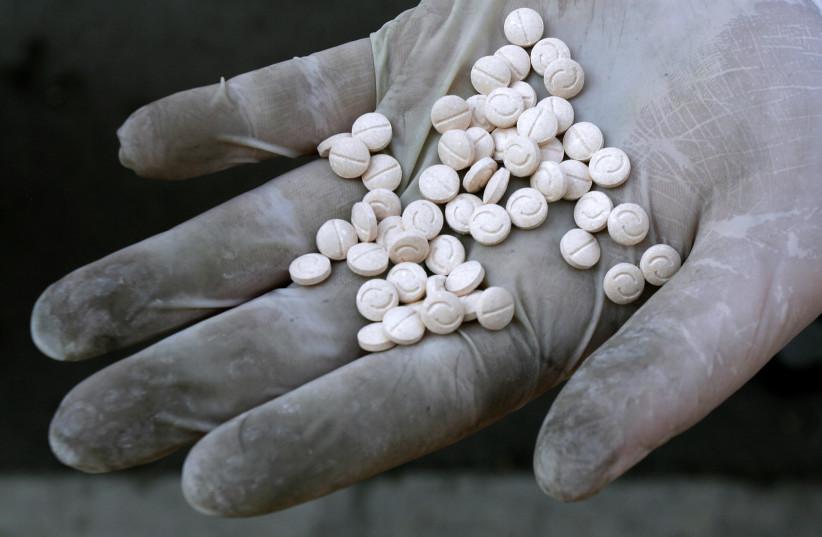
Drug used by Hamas on October 7 appears in Tel Aviv nightclubs
Captagon, the stimulant drug used by Hamas terrorists during the October 7 massacre, has made its way into some of Tel Aviv’s most popular nightclubs, alarming doctors and healthcare professionals, according to several media reports.
Over the past week, users have warned against the consumption of “Memsi,” or 3-MMC.
Memsi, which contains “cathinone” as one of its main ingredients, is a highly addictive and increasingly popular drug among partygoers in Israel, Haaretz reported.
Recently, users reported unusual side effects, including an inability to sleep for several days, rapid heartbeat, sexual arousal, and anxiety attacks, N12 news site reported.
A test conducted at the toxicology laboratory at Sheba Medical Center in Tel Hashomer indicated that the drug being sold did not possess any of the active ingredients of Memsi, Ynet reported.
The substance tested contained methamphetamines and theophylline, which are components found in the Captagon drug that Hamas terrorists used during the October 7 massacre, the report said.
In 2023, Captagon pills were discovered on the bodies of Hamas terrorists. The narcotic was allegedly used to keep them alert and calm during their rampage, elongating their period of attack and amplifying feelings of euphoria.
History of Captagon
Captagon, or Fenethylline, is a synthetic stimulant that was developed to treat attention-deficit hyperactivity disorder (ADHD), narcolepsy, and depression in the 1960s and ’70s, according to the Foundation for Defense of Democracies (FDD).
The drug became illegal in the United States in the 1980s, and counterfeit production is currently concentrated in Syria and Lebanon.
The stimulant, often referred to as “cocaine for the poor,” served as a primary source of revenue for Syria’s Assad regime, with regional data valuing the trade at $5.7 billion in 2021, according to FDD.
Dr. Roy Zucker, a specialist in internal medicine at Sourasky Medical Center in Tel Aviv, said he had received hundreds of inquiries about strange side effects experienced by recent Memsi users, Haaretz reported.
The drug the individuals had consumed was a “completely different substance – more addictive and more problematic” than Memsi, he said, adding that Memsi “is already a terrible drug as it is. It borders on crystal meth,” according to Haaretz.
The Health Ministry received a test record from Sourasky’s Ichilov Hospital and is discussing the matter with the Israel Police, Haaretz reported.
Source » jpost.com





